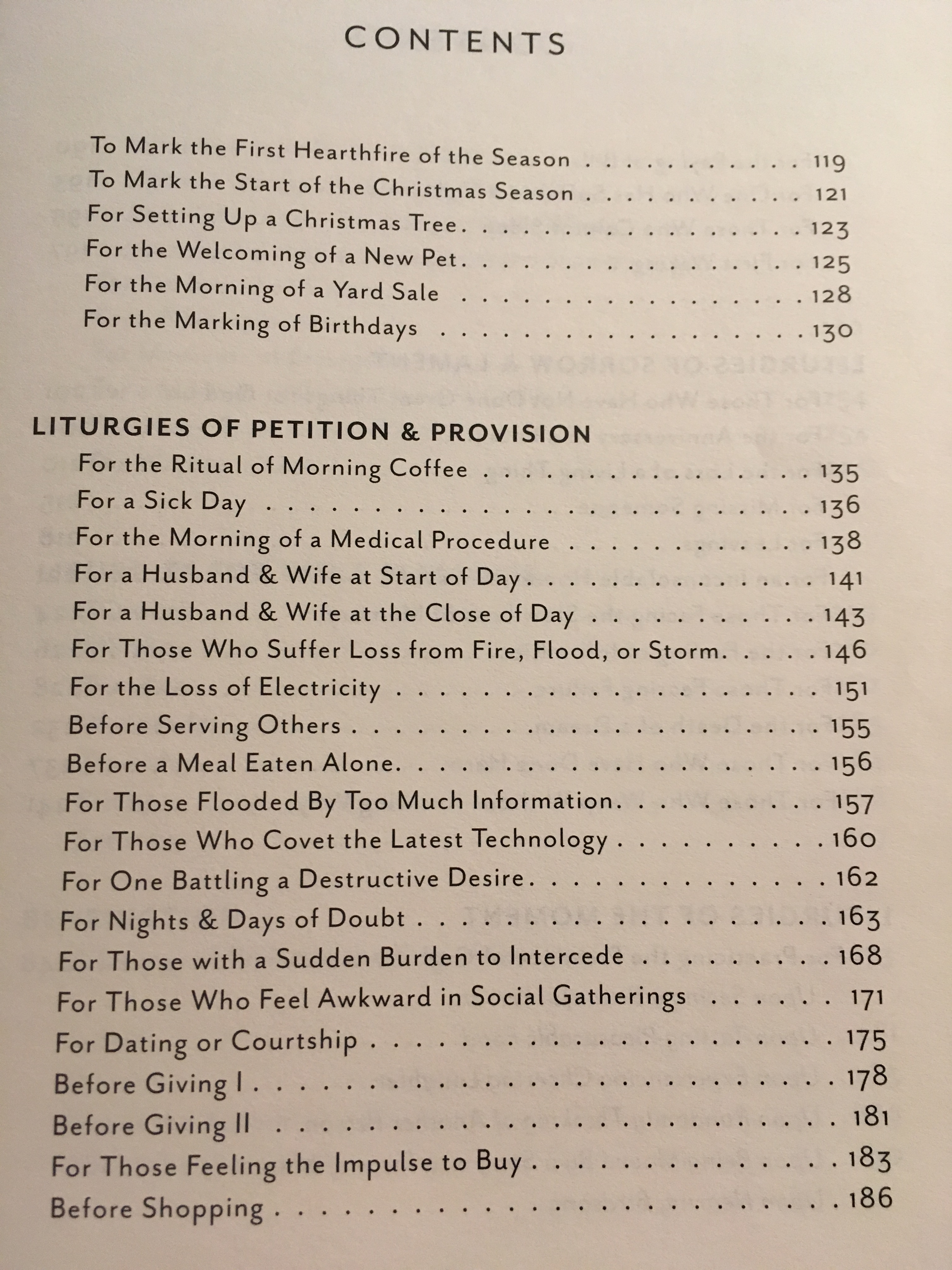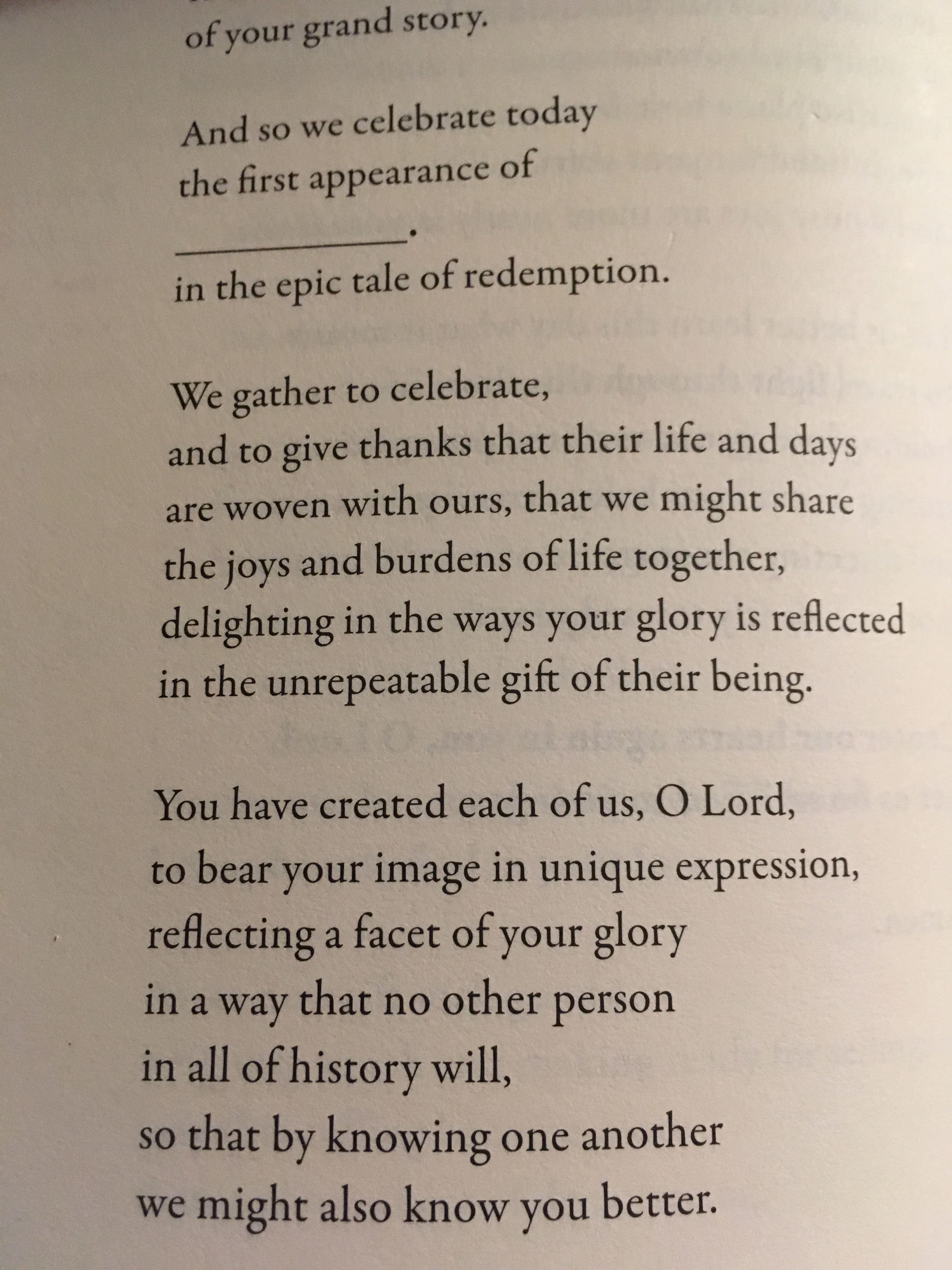Reading "Every Moment Holy": A Step Towards Seeing Monday to Friday as Sacred
Liturgy for Busy 21st Century Americans
When the topic of “reading liturgy” comes up among Christians it is often associated with corporate worship (“Does that church read liturgy during the service?”) rather than personal reading (“Do you read liturgy?”) I haven’t attended a church that regularly reads liturgy since I was 15 years old. I spend my early years in a Methodist church where I remember reading the Apostle’s Creed at least 2 times a month. I didn’t understand what all the words meant back then. But now that I’m older, I understand the context for what theological concepts that are presented in the creed. For at least 5-6 years now I’ve been curious about reading liturgy in my own time, yet unable to find a good book of liturgy to read. Then I picked up a copy of “Every Moment Holy” by Douglas McKelvey. I haven't been able to put it down since.
What is liturgy? It is essentially a pre-written prayer that someone has written directed to God. In my experience of 21st century evangelical culture, liturgy is often perceived as inauthentic because it is a prayer that someone else has written. While this can be the case, to pray a pre-written prayer can help teach me how to pray more sincerely and how to think about God’s character, His goodness and His plan for humanity. Liturgy is oftentimes poetic in some ways, which for some people can translate into “fake religious language.” Yet for me, this is attractive. If I am standing at church and we are singing a song that repeats the line “God is good” over and over, internally I am asking “What does that mean that “God is good” and why are we repeating this 5 times back to back?” Liturgy often subtly explains the goodness of God in language that goes deeper (and ends up being semi-poetic). Pre-written prayers can offer insight in the same ways sermons inform our thoughts about God’s character.
I have found that reading liturgy is a way to redirect the moments of aimlessness in my life. At least once a week I wake up and think “Who am I? How did I end up living in this random North Carolina coastal town at 36 years old?” To open up a pre-written prayer in the book “Every Moment Holy” by Douglas McKelvey has worked to help guide my thoughts towards an answer to those early morning questions. It is not good for me to be aimless as an English teacher before I arrive at work. I need to be ready to work. And there’s one particular pre-written prayer titled “A Liturgy Before Serving Others” I’ve read as a prayer to God:
“In serving you, I am freed from my
need for the praise of others. So that
even if my kindnesses are shed from
scarred hearts as rain from a sloped
tin roof, my job will not be dimmed,
for I will know that you have received
and remembered each act of sacrifice,
and reckoned it as a love rendered to you.”
This may not explain how I ended up in a random North Carolina coastal town, but it helps me remember that I have a meaningful role to play as a teacher. This liturgy (based on Philippians 2) reminds me of Christ’s identity as a servant. It only takes me 3-4 minutes to read this in the morning, but it reminds me that Jesus was content serving all kinds of people in his. Am I willing to think of myself as a servant? Can I accept my role as a servant on a boring weekday morning? Sometimes my mind and heart need a small nudge of to embrace the idea of seeing the mundane as meaningful.
Part of the beauty of McKelvey’s book is that it applies theological truths to everyday events. Look at the table of contents of the book and you’ll see a long list of liturgies that can be read at moments that we often overlook or fail to see as having any spiritual significance. I'm surprised they have a liturgy to read titled "For Those Who Feel Awkward in Social Gatherings"):
This past summer I decided that I would read the liturgy “For the Marking of Birthdays” to my mom on her 60th birthday. I was staying at her house in July when she turned 60 years old and the night before I planned on reading it to her when she walked out of her bedroom, into the living room. My dad was also awake with me and we heard her coming down the hall in her blue morning robe. We both stood up, smiling, anticipating her arrival. She looked up at us with a grumpy expression on her face and said: “What are yall doing?” And we said “Happy Birthday!” I then asked her to sit down and I read her the liturgy:
And as I read this to my mother, it was as if I was recognizing God's presence at the moment along with her and my father. The words of this poem were commemorating the fact that there is no other person on earth (past or present) like my mom: Patti Branson. This helped connect the unique creation by God that my mom is as she exists in God’s universe.
We do need reminders that God does love us, and He has a purpose for our lives. Believe it or not, small prayer-poems like this can help affirm that.
I believe that reading liturgy can help make the small moments into sacred moments. Yet for myself, I haven't picked up on this personal habit. In the forward to the book, songwriter Andrew Peterson stated that "Every Moment Holy" fulfilled his hope for a more modern book of liturgy. Peterson explains what has provoked him to explore liturgical-style worship in its both oldness and newness for himself and other Christians:
“...there are millions of Christians the world over, for a host of reasons, who have never engaged in liturgical worship. For many of us, this old thing is a new thing, and that brings with it some discomfort---but also a heightened appreciation for the ancient rhythms of prayer and meditation which have been more or less absent from our experience. And as much as we may need this new (to us) language for prayer, those who grew up with it may also need our fresh enthusiasm for it to remind them what a profound gift it is to speak these ancient tongues, not just to know but to be reminded by all the saints how wide, high, deep and broad is the love of God in Christ.”
For myself, McKelvey’s book re-introduces these prayers that speak directly to specific situations that I find myself in. In an age where creativity and being original is considered to be the chief virtues of the 21st century, why ignore the well-worn templates used in the 19th and 20th centuries for prayer? Is that not how we stay sane in the 21st century-------pray regularly to God for help?
I even found myself at a dinner party recently in Charlotte where the prayer before the dinner was a liturgy from this book. This was a unique dinner party I attended, where my friend Julie gathered 20 of her friends together on a September night to eat dinner on her front porch. We all read the liturgy together titled "For Feasting with Friends" before we ate dinner together which began:
"To gather joyfully
is indeed a serious affair,
for feasting and all enjoyments
gratefully taken are,
at their heart, acts of war."
I could not help myself but be excited that I was in the presence of all these people to acknowledge God's presence and gifts together with those around me. I believe to read a book of liturgy, with prayers written out in this manner, is an opportunity for Christians to remind themselves of God's realities in the everyday. The Christian faith works most effectively when it is not contained in the walls of “the church” but it is integrated into our 21st century American lives. Reading liturgy in our own personal spaces is one way to remind ourselves of God's character and God's story as it intersects with our own. (If you haven't tried reading pre-written prayers as a part of your faith, I highly recommend checking out "Every Moment Holy.")[https://www.amazon.com/Every-Moment-Douglas-Kaine-McKelvey/dp/0998311235]

